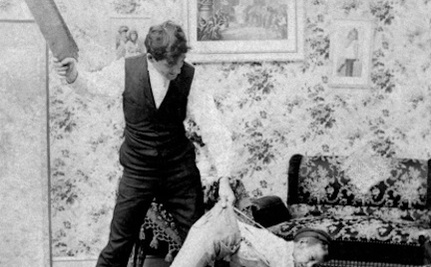As fathers we have long been expected by society to be the 'punishers and disciplinarians' in family life.
As a child I was warned wait till your father gets home! It must have been a nightmare for my Dad, expected to deliver punishment to me for something that he had no involvement in and that had happened hours previously.
While the role of fathers is changing we are still expected to be the disciplinarians. Many of us are turning against corporal punishment. I have never smacked either of my children and I can honestly say they are far more well behaved and well adjusted than I ever was.
I answered a question from a father who asked if it was OK to physically restrain his teenage child when they threw a 'tantrum'. My reply asked whether the teenager was likely to hurt themselves or others? If not, then ‘restraint’ is likely to exacerbate any situation. Parents and carers can use restraint to protect their children but in my opinion should do so only as a last resort if the child is likely to harm themselves or others.
The use of restraint is a skill taught to carers by professionals who might use it. The use of restraint by unqualified and unskilled individuals - even though well meaning, can be is potentially dangerous, even lethal. Just type into Google ‘death while being restrained’ and I'm sure you will find the names of people like Karl Brunner, Kingsley Burrell and Eric Garner.
If you use restraint, though you may try to remain calm, your heart rate will increase and adrenaline levels rise. It will be really hard to stay calm yourself. Remaining calm is the key and this is very hard if you are wrestling with a teenager. Think “how will my child perceive my attempt to restrain them?” Will they think you are try to assault or hurt them? If so, they might fight back. What would you then do if the punch, smack or bite you? Would you be able to stop yourself retaliating?
In an inquiry into children's homes in Britain, investigators found that staff had been using restraint as a punishment. Children were warned they would be ‘decked’ if they did not comply with the rules. So restraint became a disguised method of physical punishment. Restraint is a minefield and not very effective. Unless your child is at genuine risk of injury, leave them alone. Your child will calm down far more quickly if you ignore their temper tantrum.
A strategy of ignoring temper tantrums is far more effective because what the child is doing is trying to get your attention. It's not easy to ignore this behaviour but it is the most effective strategy.
